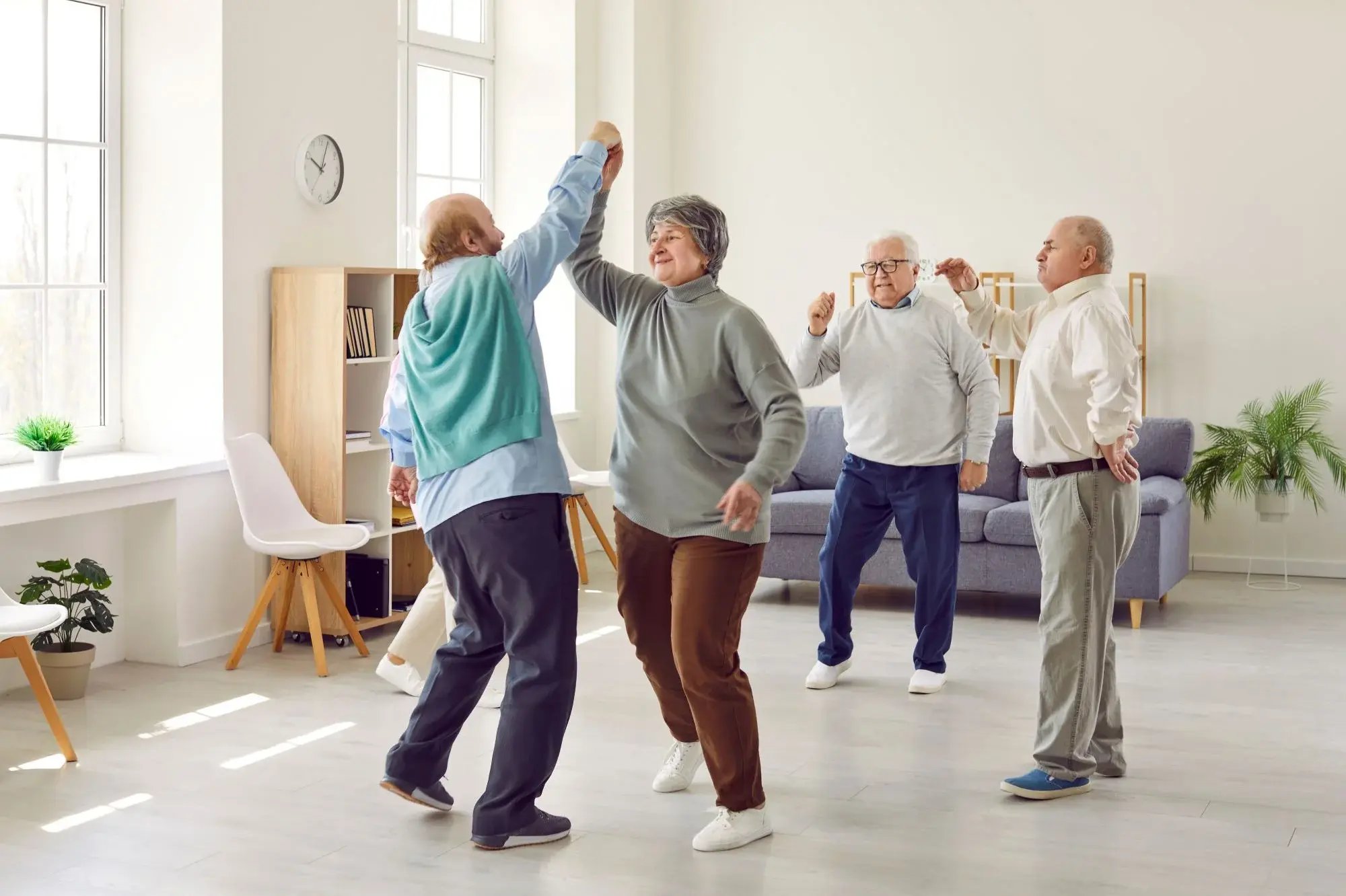Why people in care need to stay in touch

Loneliness and social isolation can affect individuals of all ages and can have significant impacts on both our physical and mental health.
According to the World Health Organization (WHO), extensive research has indicated that social isolation and loneliness can seriously impact older people's longevity, physical and mental health, and quality of life.

The effect of social isolation and loneliness on mortality has been compared to that of other well-established risk factors for mortality, such as smoking, obesity, and physical inactivity.
What causes loneliness in older adults?
There are numerous reasons why older adults may experience loneliness, and these reasons can vary from person to person. Despite our best efforts, it can sometimes be challenging to pinpoint exactly why a particular experience makes us feel lonely.
Some examples of life events or circumstances that may lead to feelings of loneliness include, but are not limited to:
- Loss of a loved one
- Being widowed or divorced
- A lack of contact with friends and family and limited opportunities to participate in social occasions
- Retiring from work
- Mental health concerns: depression, social anxiety and low self-esteem can put someone at increased risk for chronic loneliness
- Having reduced mobility
- Vision or hearing loss
- Being unable to participate in activities they enjoy
- Experiencing discrimination based on age, racial, ethnic, sexual orientation, or gender identity
- Language barriers
Loneliness may also be particularly prevalent among older adults during festive seasons such as Christmas, Ramadan, or Valentine's Day.
This could be attributed to various factors, including the absence of family or friends or the experience of living in a care home where fewer individuals share similar backgrounds, cultures, or languages.
How do you spot the signs of loneliness in older adults?
According to research by Age UK, over 1.4 million older adults in the UK report feeling frequently lonely.

Sometimes, it's easy to tell if someone is experiencing loneliness, especially after the loss of a loved one. However, other times, the signs of loneliness may be subtle and difficult to notice.
Here are some common signs and symptoms of loneliness in older adults:
-
Unusual behaviour, like withdrawing from others or withdrawing from social events
-
Restless sleep or sleeping too much
-
Lack of appetite
-
Self-neglect
-
Expressing feelings verbally
-
Poor spending habits
-
Changes in communication frequency
-
Spending more time alone
How do you combat loneliness in older adults?
Being in a care home that offers the opportunity for social engagement, fostering meaningful connections, and pursuing personal interests can serve as a powerful antidote to the pervasive issue of loneliness among older adults.
Additionally, care staff play a vital role in combating loneliness, providing companionship and engaging in meaningful conversations, helping residents feel heard and valued.

Care workers can also facilitate the use of technology to maintain connections with family and friends and encourage active participation in various social activities and community gatherings.
For example, ResHub, a research-driven resident experience platform (one of our Connected Care Platform's integrated solutions), helps to keep residents, families, and care staff connected, elevating the daily resident experience.
Combat loneliness with ResHub!
With ResHub, care staff can easily share special moments, photos, videos and messages with family members, truly connecting them to the daily journey that their loved ones experience within a care home!

Residents can also easily keep in touch with loved ones wherever they are!
ResHub's user-friendly platform allows family members and staff to schedule video calls, ensuring that residents can maintain their valuable connections with ease and convenience.

 And that's not all! ResHub also helps providers understand residents' preferences and choices and gather individuals' experiences of care, which is essential for ensuring the delivery of safe, effective, caring, responsive, and well-led services.
And that's not all! ResHub also helps providers understand residents' preferences and choices and gather individuals' experiences of care, which is essential for ensuring the delivery of safe, effective, caring, responsive, and well-led services.
Click here to learn more.
Combat loneliness with our Oomph Wellbeing and Activities platform!
Another technology that helps combat loneliness is our Oomph Wellbeing and Activities platform. It provides ready-to-deliver content in a wide range of formats, including live sessions with singers, dancers, and relaxation specialists, helping to:
- Bring residents together
- Boost physical and emotional health
- Enhance quality of life
- Maintain independence
- Improve family and friend interaction
- Boost brain stimulation
- Improve balance and mobility
- Reduce isolation and loneliness
- Improve social interaction
- Reduce depression

Created by experts in wellbeing, mental health, dementia, and nutrition, the platform also provides fun activity packs for residents, support materials for staff, specially designed reminisce newspapers for older adults and people living with dementia, themed calendars, Oomph TV featuring live exercise classes, activity sessions, and videos from expert partners, and even a worldwide radio platform with over 110,000 Radio Stations (FM, AM and Internet) stations and podcasts from 130 countries, plus more!
Combat loneliness in your care home with our integrated solutions!
Book a consultation today to discover which solutions work best for you!




.png)

.jpg)
.webp?width=80&height=80&name=HTD%20Awards%202023%20Badge%20(4).webp)














